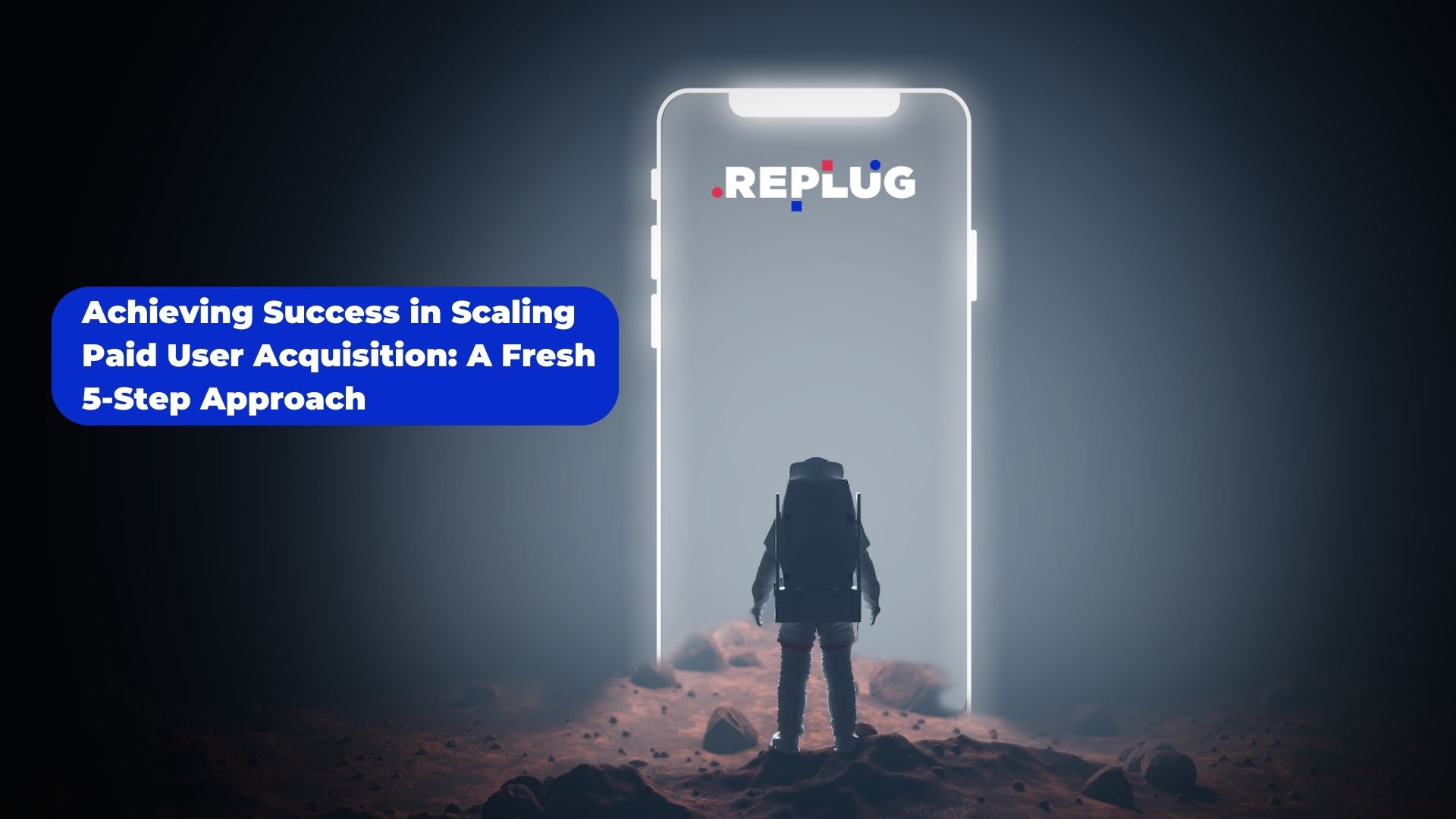App Store Optimization – In-app Purchase Policy changes
- Monday, September 13th, 2021
- Share this article:
Dave Bell, Co-founder and CEO of Gummicube, explains the new options open to developers to communicate purchasing options with their users in the Apple App Store.
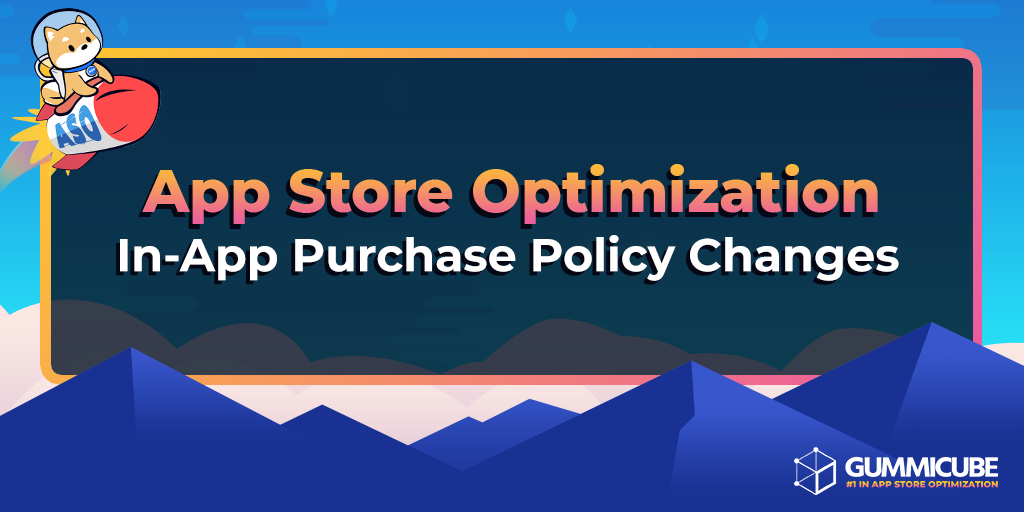
The Apple iOS App Store is changing for developers, due largely to multiple legal proceedings that have been driving Apple to reevaluate how developers may communicate purchasing options with their users.
There has been ongoing discourse in the news and in courtrooms about how “fair” Apple’s App Store business practices are, and debate as to whether or not the company should be defined as having a monopoly on the mobile app market. Along with the Epic Games v. Apple case – arguably the most visible case in the whole saga – there have been some developments that have resulted in changes to Apple’s policies which developers should take note of as they release new updates and as part of their App Store Optimization strategy.
United States Cameron et al v. Apple Inc. lawsuit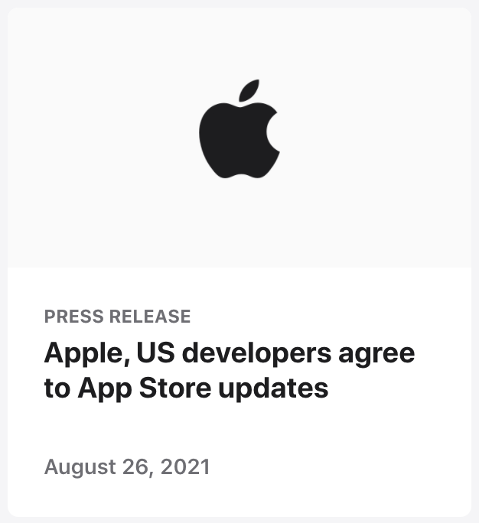
Apple recently opened up its guidelines to allow developers to communicate purchasing options beyond Apple’s in-app payment system with their users. This new policy was announced Thursday 26 August, and will allow developers to communicate alternative purchasing options to their users via email that may cost less than Apple’s in-app payment system.
Apple’s press release states that developers may use contact information that has been collected from users in their apps, such as email addresses and phone numbers, but that users must first consent to the communication and may opt out at any time.
“Apple is also clarifying that developers can use communications, such as email, to share information about payment methods outside of their iOS app[…]Users must consent to the communication and have the right to opt out.”
Apple Press Release, 26 Aug, 2021
Apple proposed these changes to its App Store policies as part of a settlement with developers who brought the Cameron et al v. Apple Inc. class action lawsuit against the tech giant. This coalition of developers accused Apple of having a monopoly on the mobile app market, alleging that its “anti-steering” practices financially hurt developers by not allowing them to offer Apple users price cuts or promotions that bypass Apple’s “App Store Tax”.
There is still contention over this debate, with some arguing that Apple’s “App Store Tax” is a common commission fee across similar industries, such as the gaming giants Nintendo, PlayStation, and Steam, and other distribution platforms like Roku and Samsung. Additionally, there is a risk that third-party payment processing could end up being less convenient for all parties in reference to facilitating refunds, and could potentially be more costly than Apple’s 15-30 per cent commission fees.
Japan Fair Trade Commission investigation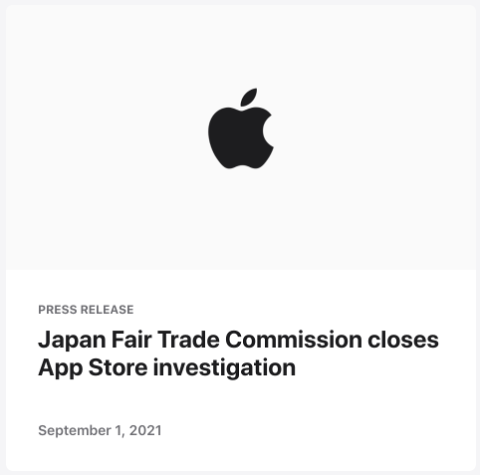
In addition to the aforementioned ability to communicate pricing options via email, starting next year Apple will allow developers of “reader apps” to provide users with a link to an external website in their apps for account setup and management. “Reader apps” are defined as apps which provide “previously purchased content or content subscriptions for digital magazines, newspapers, books, audio, music, and video.”
Apple stated that since developers of reader apps do not offer their users digital goods and services for purchase, rather offering users access to previously purchased content, the current policy of requiring the use of Apple’s in-app payment system for the purchase of goods, services, and subscriptions does not apply.
This change was spurred by a recent investigation into Apple’s business practices by the Japan Fair Trade Commission (JFTC). Apple has confirmed that this new policy will extend beyond the Japanese market and will apply globally to all “reader apps.” These changes will go into effect in early 2022, and prior to this Apple will update its guidelines and App Store review process.
Epic v Apple and potential changes on the horizon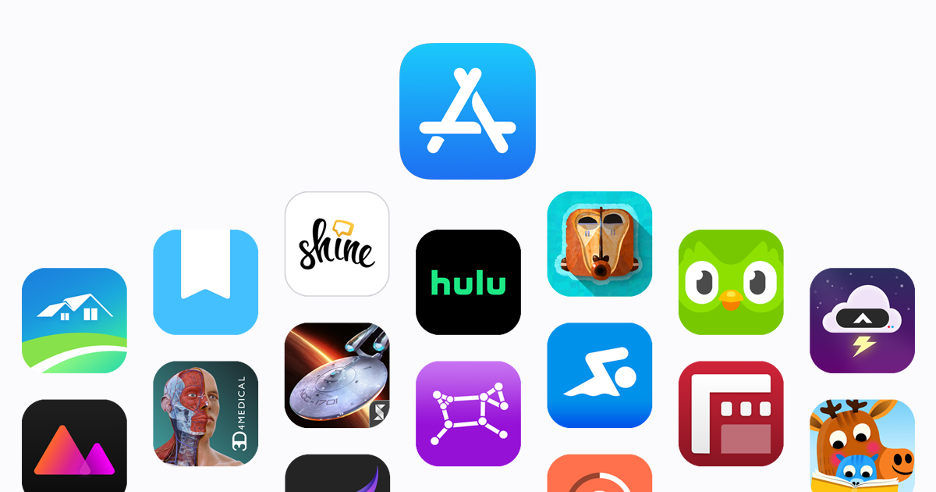 Apple and its primary competitor Google have been the subject of multiple lawsuits over what many are calling their duopoly on the mobile app market. Plaintiffs have ranged from coalitions of smaller developers to large corporations and even governmental bodies. These suits share a common claim: Apple and Google have a stranglehold on mobile apps and have allegedly been engaging in practices that discourage any up-and-coming competition.
Apple and its primary competitor Google have been the subject of multiple lawsuits over what many are calling their duopoly on the mobile app market. Plaintiffs have ranged from coalitions of smaller developers to large corporations and even governmental bodies. These suits share a common claim: Apple and Google have a stranglehold on mobile apps and have allegedly been engaging in practices that discourage any up-and-coming competition.
While recently we have seen the start of resolutions to two of these cases, developers would be wise to stay on the lookout for more policy changes on the horizon from the Epic Games v. Apple case.
This trial ran from 3 May to 24 May, 2021, and a ruling was finally released on 10 September. The decision was split, and could be seen as a win for both sides in a way. It was ruled that developers can provide alternate options to in-app purchases on the App Store within an app – not just with an external email. However, the ruling also stated that Apple’s structure is not an illegal monopoly, something that has been hotly contested by Epic, among others.
Epic Games has sued Apple not only in the United States, but in other territories including Australia, which was approved to move forward in July. A lawsuit brought against Apple in the United Kingdom was rejected by the Competition Appeal Tribunal. It should also be noted that Epic brought a similar lawsuit against Google, so we may see changes to Google’s policies as well.
All of these proceedings revolve around Apple’s alleged monopoly on mobile apps. Apple’s opposition not only cites the App Store Tax as being “unfair,” but also claims that not allowing the side-loading of apps on Apple devices is anti-competitive. Apple claims that allowing third-party apps and app stores could compromise the integrity of Apple devices, and allow malicious apps that could jeopardize user security. As of this writing there is no substantial evidence to back up this claim.
Though a ruling was made on 10 September, neither side really got what they were looking for out of the ruling. Apple was told to allow developers to allow other payment methods than IAP (in-app purchases), while also being found not to be a monopoly. Apple has 90 days to comply (by 9 December, 2021), but it is likely this ruling will be appealed – by either Apple for this new policy, or by Epic for the non-monopoly ruling.
Overall
Changes are underway in the mobile market industry as the multitudinous lawsuits and investigations into Apple’s business practices continue to unfold. Apple has altered its current guidelines to allow developers to communicate purchasing options with its users via email, effectively allowing developers to bypass Apple’s in-app payment system and its associated fees. Starting early next year, developers of “reader apps” that provide access to previously purchased digital content may provide external links to their websites in their apps. Epic v. Apple did reach a long-awaited ruling, but given the split ruling, it is likely just the season opener in this long-running series, rather than its conclusion.
This is not a comprehensive overview of every change that has occurred, nor is it a definitive guide to what will happen. Developers should simply be aware that policies and guidelines will be changing, and should stay tuned as more information becomes available and assess its potential impact on mobile app marketing and monetization.
About the Author
Dave Bell is Co-founder and CEO of Gummicube. Gummicube is a global leader in App Store Optimization with more than 11 years of experience optimizing and marketing apps. We offer the leading enterprise ASO technology and agency services, providing support to clients around the world. Our company is trusted by thousands of enterprise brands and leading startups including Microsoft, LinkedIn, Bethesda, SWEAT, GrubHub, McAfee and many others.












